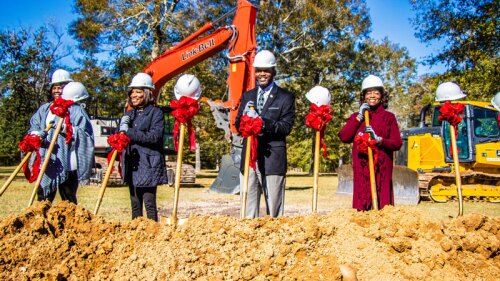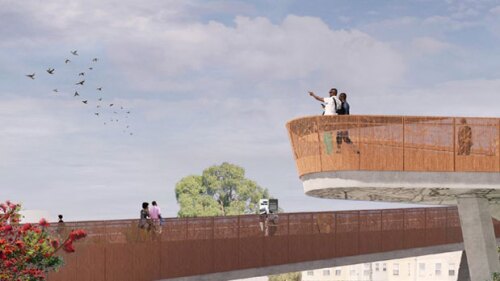For years, the ULI Advisory Services program has been providing timely advice to communities on strategic and important land use issues. The latest evidence of how these programs shape decision making is the Martin Luther King, Jr., Memorial Library in the heart of downtown Washington, D.C.
Last November, an advisory panel was conducted to suggest redevelopment alternatives. The library is regarded as not only an important community gathering place, but also an architectural and cultural icon; it is the last public building designed by the renowned modernist architect Ludwig Mies van der Rohe and the only one located in the nation’s capital.
Not only have the functions of libraries changed radically since the building opened in 1972, but the current building is in dire need of renovation. The ULI report suggested adding floors to the library building and sharing space with another civic, cultural, or commercial entity. That alternative is now being seriously considered by the District of Columbia Public Library (DCPL).
Shortly after delivery of the panel report, the DCPL hired a team of consultants to flesh out the suggested alterations. The DCPL presented renderings of possible renovations at a public meeting in late September.
The consultants’ results confirmed the basic ULI premise that a shared facility can work. The significant upfront costs of renovations would, at least in part, have to be borne by the city. In the long run, however, some of the payback would come from the lessee of the new space. Class A office space in downtown D.C. can command as much as $50 per square foot ($537 per sq m), which could be a significant incentive for the city to undertake this project.
The approach retains the library building as a community icon but offsets some of the cost of renovation. The ULI panel stressed the urgency of addressing the issue: “Time is not on the side of a deteriorating building,” said Wayne Ratkovich, ULI governor and the panel’s chair. “This is a big issue. . . . We urge you to attend to it sooner rather than later.”
From all recent indications, the work completed by the DCPL is heeding ULI’s call to action.




